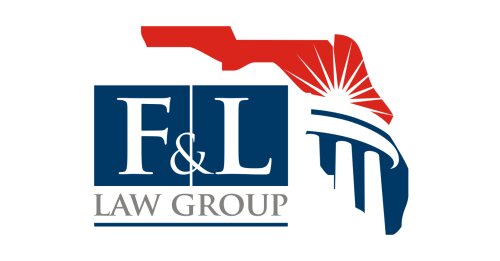Best Bankruptcy & Debt Lawyers in Florida
Share your needs with us, get contacted by law firms.
Free. Takes 2 min.
Or refine your search by selecting a city:
List of the best lawyers in Florida, United States
United States Bankruptcy & Debt Legal Articles
Browse our 2 legal articles about Bankruptcy & Debt in United States written by expert lawyers.
- Filing Chapter 7 in 2026 United States: New Income Limits
- Chapter 7 gives a near-total discharge of most unsecured debt, but you must pass a "means test" that compares your household income to your state's median income for your family size in 2026. The U.S. Trustee Program updates the state median income numbers at least once a year; you qualify... Read more →
- Debt Collectors in the US: Stop Harassment and Verify Debt
- You have strong federal rights under the Fair Debt Collection Practices Act (FDCPA) and CFPB Regulation F. Collectors cannot harass you, must send a validation notice, and must stop collecting until they verify if you dispute in writing within 30 days. Tell collectors to stop contacting you, then follow up... Read more →
About Bankruptcy & Debt Law in Florida, United States
Bankruptcy and debt law in Florida covers the legal processes and rules that individuals and businesses must follow when dealing with overwhelming debt. Bankruptcy is a legal remedy that allows people to either eliminate or reorganize debts under the protection of the federal bankruptcy court. Debt law also includes negotiations with creditors and various alternatives to bankruptcy. Florida follows federal bankruptcy laws but has important state-specific exemptions and rules that affect how assets are treated during bankruptcy proceedings.
Why You May Need a Lawyer
Many people seek legal help in the field of bankruptcy and debt for several reasons. Common situations include:
- Facing foreclosure on your home
- Receiving constant collection calls or letters
- Having wages garnished due to unpaid debts
- Being sued by creditors
- Dealing with overwhelming medical bills, credit card debt, or business losses
- Not knowing which chapter of bankruptcy is appropriate
- Needing guidance for protecting assets
- Wanting to avoid mistakes that could lead to dismissal or denial of bankruptcy discharge
A lawyer can help explain your rights, represent you in court, prepare and file necessary documents, and negotiate with creditors on your behalf. An experienced attorney can ensure you follow both federal and Florida-specific rules for the best possible outcome.
Local Laws Overview
While bankruptcy is governed mainly by federal law, Florida has several local laws and exemptions that play a significant role in bankruptcy proceedings:
- Homestead Exemption: Florida offers one of the nation's most robust homestead exemptions, allowing you to protect the full value of your primary residence, subject to certain acreage and time requirements.
- Personal Property Exemption: Individuals can exempt up to $1,000 in personal property or $4,000 if not claiming the homestead exemption.
- Wages and Pensions: Certain wages and retirement accounts are protected from creditors under Florida law.
- Tenancy by the Entirety: Property owned jointly by married couples may have additional protection from creditors.
- Chapter Selection: Most individuals file under Chapter 7 (liquidation) or Chapter 13 (repayment plan), subject to a means test and other eligibility requirements.
- Exemptions: Florida law requires residents to use state, not federal, exemptions if they have lived in the state for at least 730 days before filing.
Understanding these local provisions is crucial to protecting your assets and completing bankruptcy successfully.
Frequently Asked Questions
What types of bankruptcy are available in Florida?
Most individuals file for either Chapter 7 (liquidation of non-exempt assets) or Chapter 13 (reorganization and repayment plan). Businesses may also file under Chapter 11.
Will I lose my home if I file for bankruptcy in Florida?
Florida's homestead exemption protects your primary residence in most cases, provided you meet certain requirements regarding property size and how long you have owned the home.
Can bankruptcy stop foreclosure or repossession?
Filing for bankruptcy creates an automatic stay, which temporarily stops foreclosure, repossession, and most collection actions. Chapter 13 may allow you to catch up on missed mortgage payments through a repayment plan.
How do I know if I qualify for Chapter 7 bankruptcy?
Eligibility depends on your income compared to the Florida median and passing a means test. A lawyer can help determine if you qualify.
What debts can be discharged in bankruptcy?
Most unsecured debts like credit card balances, medical bills, and some personal loans can be discharged. However, most taxes, student loans, child support, and alimony are not dischargeable.
Will bankruptcy completely ruin my credit?
Bankruptcy will negatively affect your credit score, but it may allow you to rebuild your credit faster than if you continue to miss payments or have judgments issued against you.
Can I keep my car if I file for bankruptcy?
You may be able to keep your vehicle if its equity is within Florida's exemption limits or by continuing to make payments under a Chapter 13 plan.
Do I need to list all my debts and assets?
Yes. You must provide complete and accurate information about all your assets, debts, and income when filing for bankruptcy.
How long does the bankruptcy process take in Florida?
Chapter 7 bankruptcy typically takes about three to six months, while Chapter 13 repayment plans last three to five years.
Should I try debt settlement or consolidation first?
It depends on your situation. Debt settlement or consolidation could be alternatives if you have regular income and fewer debts. However, if collection actions are aggressive or debts are unmanageable, bankruptcy may provide better protection.
Additional Resources
If you need more information or assistance, consider reaching out to the following resources:
- United States Bankruptcy Court for the Southern, Middle, or Northern District of Florida
- Florida Bar Association Lawyer Referral Service
- Florida Legal Services
- Legal Aid Societies in your county
- Florida Department of Financial Services for consumer debt resources
- Nonprofit credit counseling agencies
Next Steps
If you are struggling with unmanageable debt or facing legal action by creditors, you should consider the following steps:
- Gather all of your financial documents, including debts, income, and assets.
- Research local laws and exemptions to understand your rights in Florida.
- Consult with a qualified bankruptcy and debt attorney to get personalized legal advice.
- Ask about alternative options such as debt settlement or negotiation if appropriate.
- Keep thorough records of all communications with creditors and legal actions taken.
Taking the first step by seeking legal advice is crucial. A knowledgeable Florida bankruptcy lawyer can help you understand your options and assist you through every stage of the process to help you regain financial stability.
Lawzana helps you find the best lawyers and law firms in Florida through a curated and pre-screened list of qualified legal professionals. Our platform offers rankings and detailed profiles of attorneys and law firms, allowing you to compare based on practice areas, including Bankruptcy & Debt, experience, and client feedback.
Each profile includes a description of the firm's areas of practice, client reviews, team members and partners, year of establishment, spoken languages, office locations, contact information, social media presence, and any published articles or resources. Most firms on our platform speak English and are experienced in both local and international legal matters.
Get a quote from top-rated law firms in Florida, United States — quickly, securely, and without unnecessary hassle.
Disclaimer:
The information provided on this page is for general informational purposes only and does not constitute legal advice. While we strive to ensure the accuracy and relevance of the content, legal information may change over time, and interpretations of the law can vary. You should always consult with a qualified legal professional for advice specific to your situation.
We disclaim all liability for actions taken or not taken based on the content of this page. If you believe any information is incorrect or outdated, please contact us, and we will review and update it where appropriate.
Browse bankruptcy & debt law firms by service in Florida, United States
Florida, United States Attorneys in related practice areas.
Browse bankruptcy & debt law firms by city in Florida
Refine your search by selecting a city.












